
Welcome to the world of SEO where you can learn a lot of things, such as different strategies on how to help your website rank up in Google searches.
The rank competition is quite tough because you need to understand that it is not all about how good your content is, but you need to tweak it also to not only make it relevant to the search but also to generate income or a better conversion rate from your potential customer with just organic traffic.
So today, we’ll talk about this tweak, a process for you to get a better conversion rate through a piece of content creation, the effective application of keywords, the keyword research process which may include relevant keywords and search terms, broad keywords vs long-tail keywords or short-tail keywords, plus the involvement of user intent when it comes to their search intent
You will also learn basic keyword research tools that could help you in creating your articles, pages, or blog posts, which is part of your SEO strategy.
The keywords and phrases in your online content that allow people to find your site via search engines are known as keywords. Keywords connect searchers to your site. A website that is well-optimized for search engines “speaks the same language” as its potential visitors. One of the most important aspects of SEO is keywords or for basic human language, some may use key terms or actual search terms.

To put it another way, you need to understand how people search for the products, services, or information you provide to make it simple for them to find you—otherwise, they’ll end up on one of the many other pages on Google results. Keywords will help your website rank higher than its competitors.
As a result, creating a keyword list or list of terms is one of the first and most crucial processes in any search engine optimization campaign. When it comes to executing a successful search marketing strategy, keywords and SEO are inextricably linked. Because keywords are the cornerstone of all other SEO activities, it’s well worth the time and money to make sure your SEO keywords are highly relevant to your target audience and well-organized for action.
Choosing the appropriate keywords is a complicated process that requires both trial and error, but the fundamentals are simple to grasp. Here, we’ll show you how to find out what your clients want, find the keywords that will help you rank higher on a search engine results page (SERP), and use them in your original content.
As a website owner, keywords assist you in:
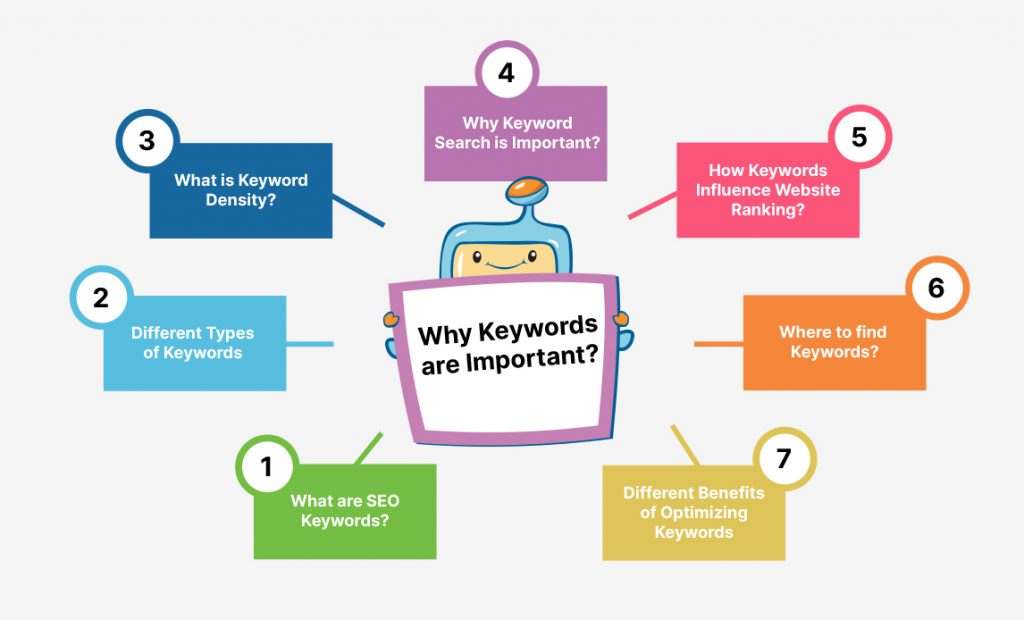
All of these are important for SEO. Keyword research allows you to learn how your target audience might describe and search for your products or services. It also demonstrates how people use search engines to request more information on your themes.
You can come up with a new content strategy or type of content using these words and phrases. You can also optimize your sites to match a user’s intent and respond to their questions.
Keyword research and optimization can help you appear on the first page of the search results. In reality, according to statistics from 2020, the majority of title tags and head terms on Google’s first page had phrases that were an exact or partial match to the search query.
Keyword research has other advantages besides search engine ranking that might help you better serve your customers.

The best way to collect Keywords is through keyword research or with the help of seed keywords. How do you get started?
Here is a keyword research guide that you can use to start.
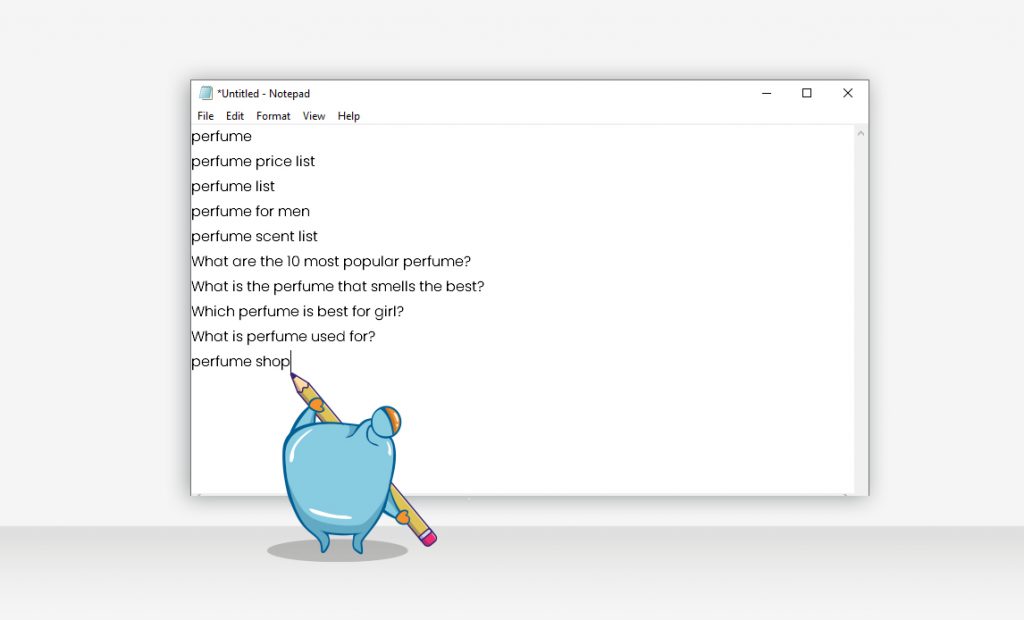
I know you are very much excited to know what these keyword research tools are. Take note of how to use these tools and how to use the keywords you have collected to help you set up your page towards that term, increase your rank, and get a better conversion rate with just organic search traffic.
Every SEO expert and SEO content writer would go and pick keywords out from Google Suggest. This is the basic drill when looking for keywords to use for your content. But how do you get these keywords and how do you pick the best one?
To use this keyword research tool, think of any brand right now, be it a bag, shoes, perfume, or dress. Then, open Google’s search engine and type the said brand. Upon typing it, you noticed that there are suggestions below before you even completed your search, and voila! That is the easiest way to get keywords and it’s for free!
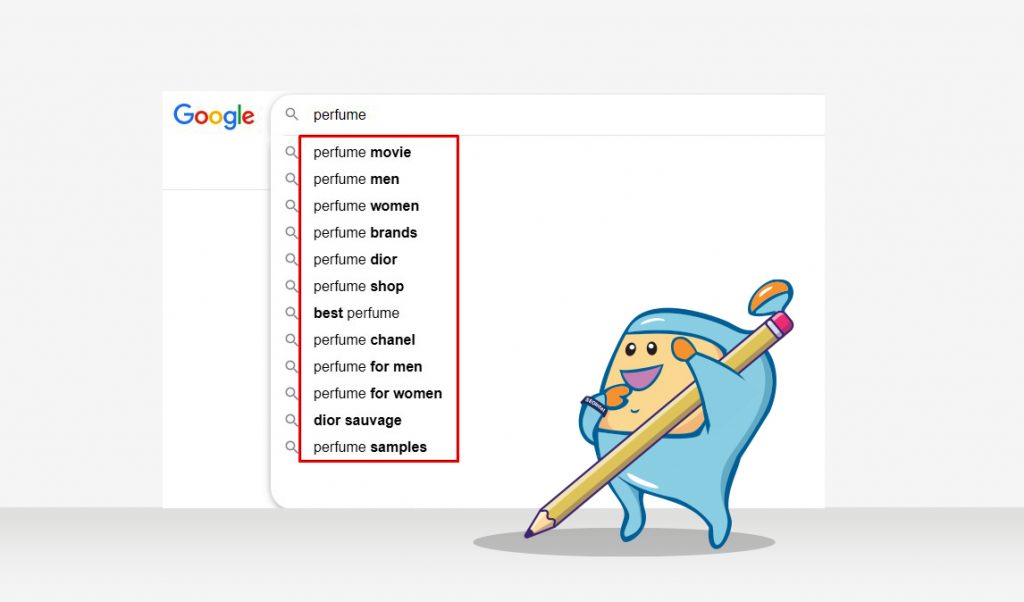
But, you may have noticed that it looks like there are phrases made up of three to five words in most cases.
Then, you just met your long-tail keywords. These keywords help you to target specialist populations because they are more specific than broad terms. You can learn more about long-tail keywords in our article on long-tail keywords.
The keywords you’re getting from Google suggests the voice of the users, or users’ intent, whenever they think to buy something or look for something online.
AnswerThePublic, as they claimed, collects autocomplete data from search engines like Google and rapidly generates every helpful phrase and question related to your term.

It’s a treasure mine of customer data that you can leverage to develop new, really helpful content for your products and services. The kind of content that your clients want and are looking for.
It’s very easy to use this tool but if you want more access or need to do more keyword research, it will cost you an account, meaning you need to subscribe for premium access for more access to searches and their features.
But let’s not talk about how much it will cost (you can just visit their website and look for their plans) and let’s discuss how you can use this tool and what you can get from this website.
First, in the URL box, type in answerthepublic.com, it will direct you to their website.
As of now, you can see a robot jiggling and doing some cute stunts to get your attention (lol). Kidding aside, under Discover what people are asking about… there’s a search bar where you can put in the brand you searched a while ago on Google Suggest, then hit search, once done, just wait for the results.
The result will generate several questions from A-Z that you can use as headers or topics for your content.
SEMrush is a piece of software that assists businesses with digital marketing techniques such as SEO campaigns. This all-in-one digital marketing solution enables you to run SEO, PPC, social media, and content marketing campaigns. We’ll concentrate on using SEMrush for SEO.
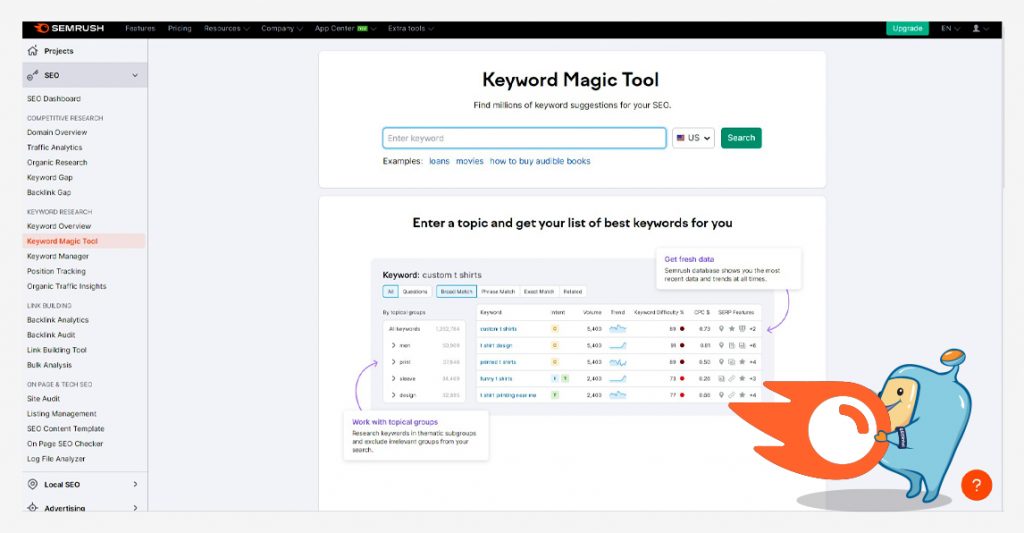
You can use SEMrush to spot emerging trends in your industry specialty. It examines your on-page SEO and offers suggestions for improving your pages. This allows you to have a better understanding of your website and improve it for SEO to increase lead generation.
SEMrush also assists you in identifying important keywords for your campaign. You’ll discover the terms your competitors are employing and how they rank in search engines. It provides a wealth of information on how you compare to your competitors.
This program is for those who require assistance with digital marketing. SEMrush makes SEO simple to comprehend and apply, even if you have little experience or skills.
To use this tool, go to their website, semrush.com. Then on the left side, you can see the menu, look for the Keyword Magic Tool. After clicking it, look for the search bar that will be shown in the center part of the website then just type in the target keyword that you wanted to use, set the country or target location for the search, and just wait for it to generate results.
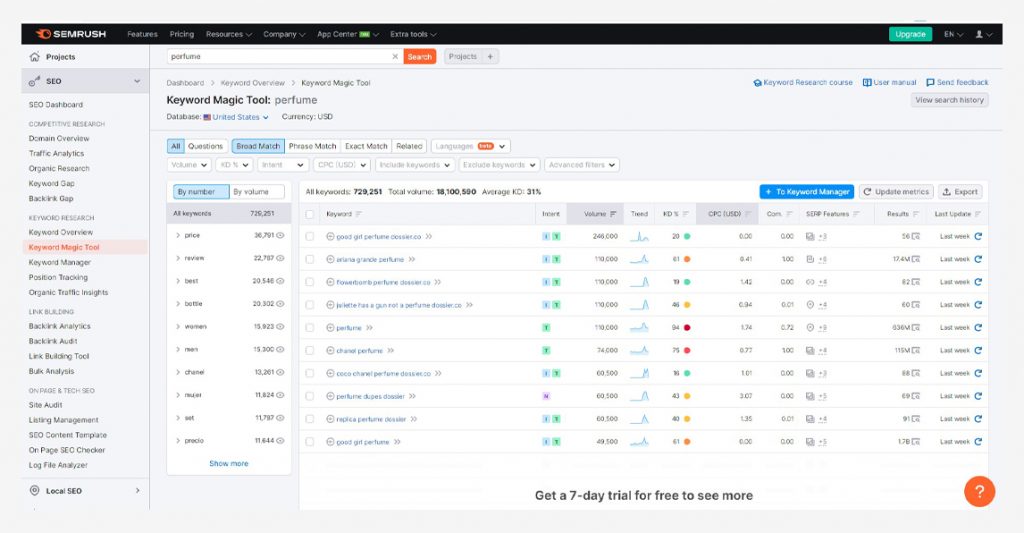
Now, this tool is not for free, if you want full access you need to pay for it.
Using Amazon for keyword research is just like using Google Suggest. When you start typing a search query, Amazon presents products that other people are looking for.
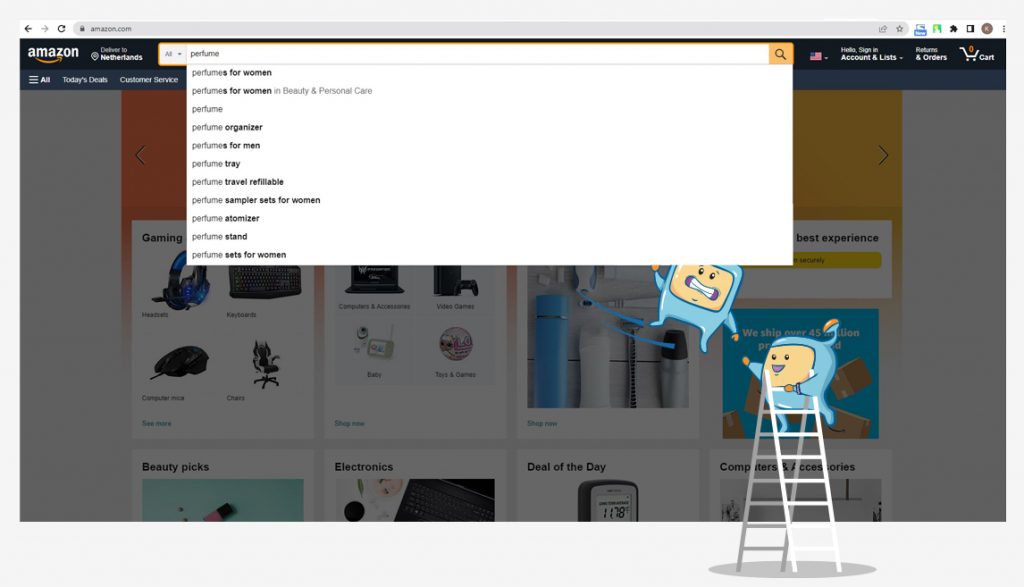
This is allegedly a free Amazon keyword tool in and of itself, and it’s a terrific technique because it provides you with a quick, free view of how your prospects utilize Amazon. Yes, there are keyword research tools that provide a wealth of useful, in-depth information—we’ll get to those later—but many of them aren’t free.
You’ll have a good list of initial keywords to build on after carefully going over the suggested inquiries (i.e., inputting the sort of product you sell followed by different letters of the alphabet).
You’ll make your products visible to more relevant, high-value prospects than ever before with the correct Amazon keyword research approach and Amazon keyword tool. Plus, with well-optimized product titles and product detail pages, you’ll quickly convert that increased visibility into clicks and conversions.
It’s also a positive feedback loop. Higher visibility is the result of good keyword research. More clicks are generated by increased exposure and better product titles. More conversions result from more clicks and excellent product detail pages. More conversions equal better search ranks, and so on.
Ubersuggest is a free SEO tool that generates new keyword suggestions. Ubersuggest was created as a tool to harvest Google Suggest phrases but was recently acquired by entrepreneur Neil Patel, who has greatly expanded the tool’s feature set.
To use this, go to ubersuggest.io, put in your target keyword, set the target country, and hit search.
You can create a list of keywords from the keyword ideas column, you can also select from the suggestions, related, questions, prepositions, and comparisons.
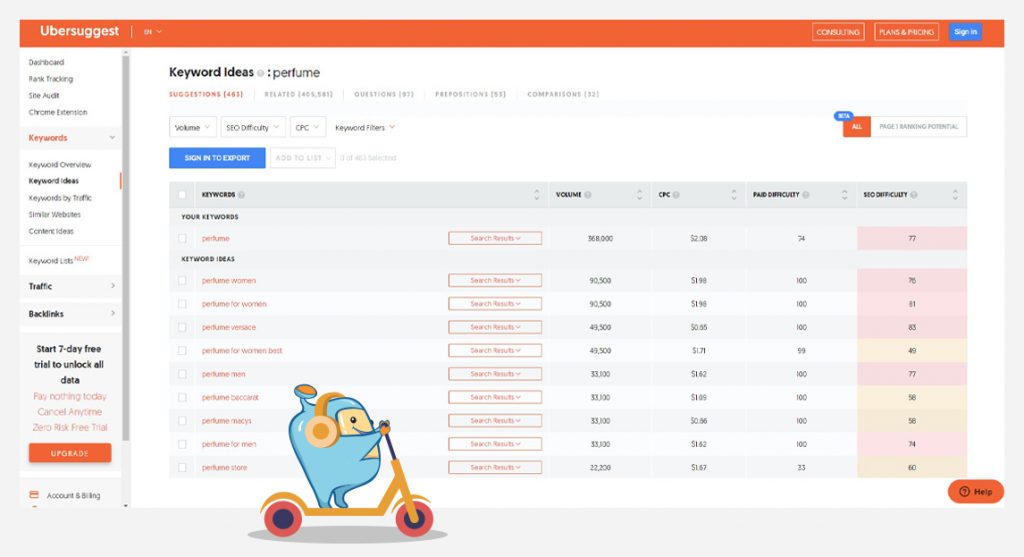
Just to let you know, you can use this tool for free but with limited access only, which means to have full access and unlimited search capacity, you need to upgrade your plan.
Serpstat is another helpful tool for detecting semantically comparable terms for your content.
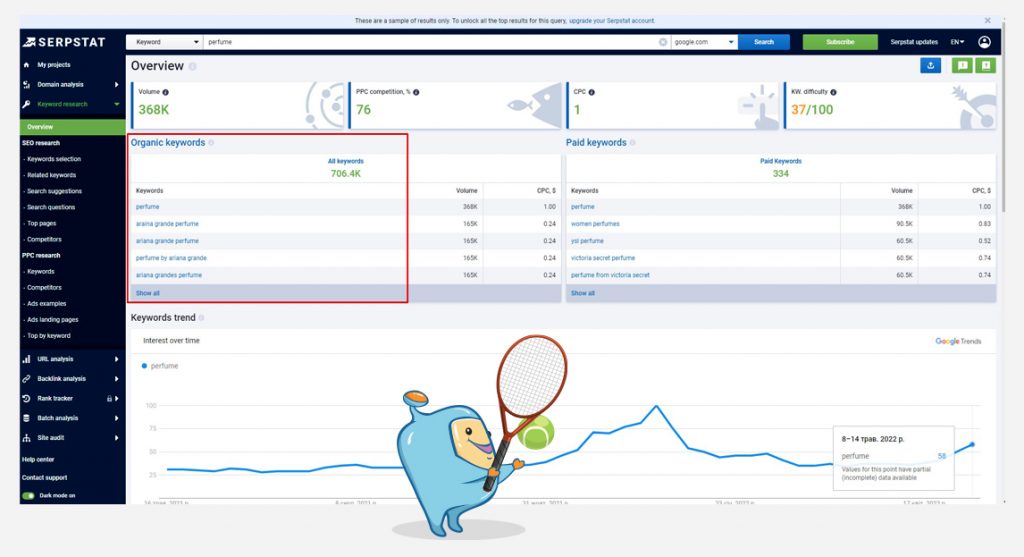
Look for Keyword Research in the menu on the left, select it from the drop-down menu, search for similar keywords, and then enter your primary keyword. You’ll be given a large range of words and phrases to choose from.
In this article, I hope you have learned about the basics of SEO Keywords and how to get a list of keywords out from scratch. You can use free keyword research tools but full access will cost you some bucks.
For a more in-depth article on choosing the right keywords, check out our Keyword Research Guide for Beginners article.